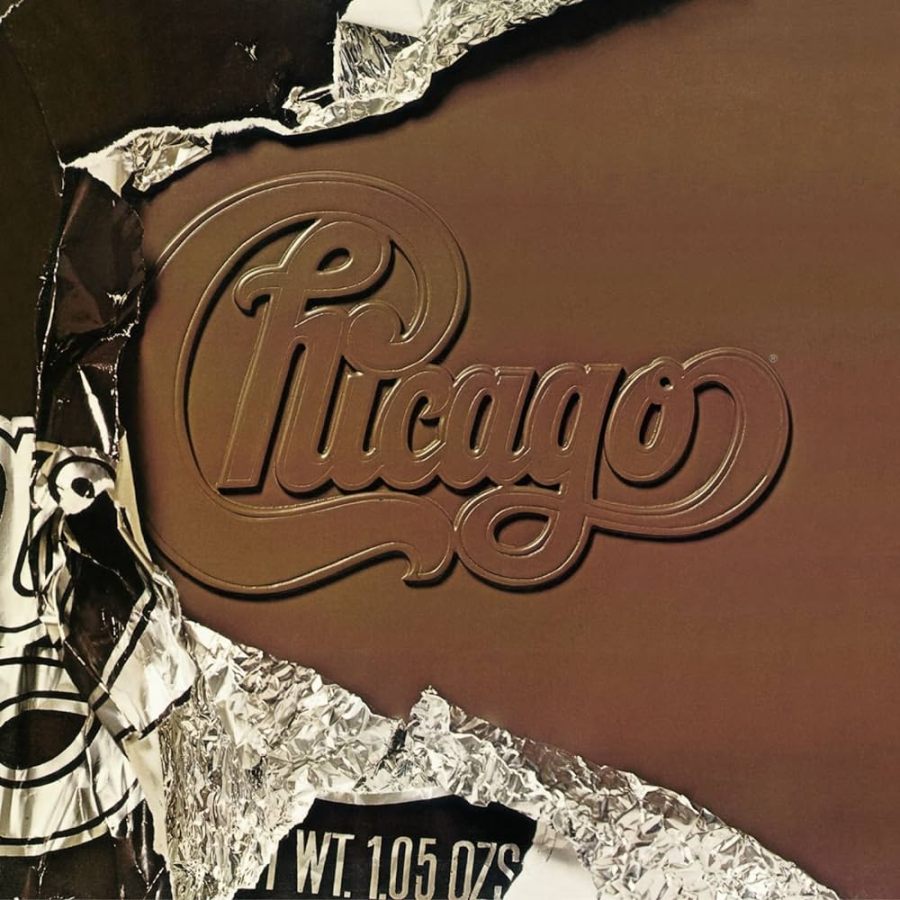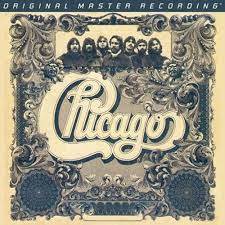Ultimate Classic Rock had it right. “There aren’t many things we can really count on in life,” they pondered, “but during the ’70s you could pretty much bank on a new Chicago record every year, and expect to see it near the top of the charts.” Indeed you could, and they did their part for the Bicentennial Year, releasing Chicago X on this day in 1976. By then they were famous for numbering their albums (this was indeed the tenth, although that included one live one and their Greatest Hits) and for having their stylized logo somewhere on the album cover. In this case, it’s etched into a big chocolate bar being opened, hence its nickname among some fans as “the chocolate bar record.”
In some ways, it was pretty much the same as before for them. They had a reasonably consistent eight member lineup, they used producer James Guercio as always and recorded it at the Caribou Ranch they so loved in Colorado. But there were noticeable changes too. For instance, none of the 11 songs roll past four minutes – a stark contrast to their early days of often long, meandering almost jam-session like works. It also seemed like Peter Cetera was taking the spotlight more and more, although at this point Chicago was still a basic democracy and most of the members got to contribute to the writing and singing. UCR note that Robert Lamm had done a whole lot of the writing not long before that but was wearying of it a little and “other members of the band stepped up.” Lamm still wrote four, but several others, notably Cetera started to take more of an active role in that. And it paid off in a big way with the single “If You Leave Me Now”, which he wrote and sang (oddly Guercio played most of the guitars on it, not regular six-stringer Terry Kath.) That would win them a Grammy, top the charts… but possibly put them squarely in the “easy listening soft rock” room of the music world from thereon in.
After “If You Leave Me Now”, the album’s most noted song was another single, “Another Rainy Day in New York City”, also sung by Cetera but written by Lamm.
The album was good, but different than say their first six or so, with less horns, less rock, more tightly-cropped pop songs. As Ultimate Classic Rock said, “they entered the studio on a creative upswing” and they were “still more than the sum of (their) parts” but… it “lacked the compositional depth and musical muscle they’d shown earlier”. Still, outside of the “lyrically dunder-headed ‘Skin Tight‘ and ‘You Get It Up’” they figured it to be a very good pop album. Allmusic later concurred, giving it 3-stars, singling out the hit single, and also noting that while they “effectively abandoned their extended free-form jazz leanings for more succinct pop” they “could (rock) as evidenced by the Terry Kath, full-tilt rave up ‘Once or Twice.’”
How did the public feel about the shift? Well, it’s hard to say. “Another Rainy Day in New York City” wasn’t a big hit, reaching #32 at home and #37 in Canada and “You Are On My Mind”, a rare Chicago song with James Pankow singing missed the top 40 altogether. But “If You Leave Me Now” was close to the anthem of the Bicentennial summer, being their first #1 single, and topping charts in Canada and Britain (which had been lukewarm to them until then) and earning them their one and only platinum single. The album on the other hand was their first since 1971 not to go to #1 domestically, hitting #3 (and the same mark in Canada and Australia as well) and #21 in the UK, where their previous four hadn’t even hit the charts). It also is now double-platinum in the States, where it was actually the first one of theirs to be recognized at platinum status. To mark that occasion, Columbia Records gave them a 25 pound, platinum chocolate bar to look like the one on the album cover! Whoever’s sitting on that these days has a pricey little knick-knack… it would be worth about $350 000.
Grammy voters liked the “new” Chicago too; they won their first of the awards for the album, for Best Pop Performance by a Group or Duo (on “If You Leave Me Now”), Best Vocal Arrangements for the same song and for the creative cover, which won Best Album Packaging. By the way… if you are interested in album covers and packaging, you’ll want to be sure to check in here next week…



